It is now well recognized that Bisphenol A (BPA) in plastics can harm human health. It similarly binds to estrogen receptors as natural female hormones do.
BPA is an endocrine disruptor that causes brain and reproductive damage and increases the risk of some cancers. As a result, there was a solid push to eliminate BPA from the majority of people’s eating, drinking, and storage containers.
The lining inside canned goods, which included the chemical, was also suspect. BPA was removed from baby bottles and children’s sippy cups by the FDA in the United States when concerns arose over a possible link between it and developmental fetal abnormalities in newborns and youngsters.
New studies also reveal that BPA-free alternatives may not be relatively safe, such as Bisphenol S (BPS).
BPAF and BPC are lesser-known bisphenols that mimic and bind to estrogen receptors. In many studies, BPA alternatives are more harmful to our health than BPA.
Table of Contents
BPA and BPS Study
Wayne et al (2015) at UCLA discovered the influence of BPA and BPS on zebrafish reproductive system genes and brain cells that control reproduction.
The experiment exposed zebrafish to low dosages of BPA and BPS. They exposed the zebrafish embryos to low levels of BPS and recorded the effects, finding that these chemicals had a similar impact to BPA on the embryo.
Some of the adverse side effects included early embryonic development, preterm birth, and altered estrogen and thyroid hormones.
Before this research, Texas scientists discovered in 2013 that BPS “interferes with the normal functioning of a cell” and, in many cases, results in cell death at concentrations of one part per trillion.
It was discovered that BPS outperformed BPA by 60% in terms of the rate of accelerated neural cell development. According to the study, BPA showed increased sensitivity to light at 180 percent to BPS’s 240 percent.
The zebrafish that underwent chemical testing was revealed to be hyperactive.
In this 2014 research by Wang et al., female rats were found to have developed heart arrhythmia at doses comparable to those that humans would be exposed to.
It also reduced the sperm count in male rats and many other adverse effects.
According to a study done by Scott Belcher, an endocrinologist at the University of Cincinnati, BPA leaches from plastics 55 times more quickly when exposed to high heat than in ordinary or cold situations.
Additionally, the leaking rate after boiling baby bottles or sippy cups and then allowing them to cool increased.
Reducing Everyday Exposure
It is challenging to live bisphenol-free because these chemicals are present in a variety of consumer goods manufactured on a regular basis. This implies it’s unrealistic for us to entirely remove BPA and other chemicals like BPS from our lives.
However, we may do a few things to reduce our exposure as much as possible.
Reduce your overall exposure by following these recommendations:
- Instead of using plastic wrap, try aluminum foil, beeswax-coated cotton wraps (reusable), or parchment paper.
- Organic tea (conventional tea is filled with pesticides) that comes in loose-leaf form is best. You may use a stainless steel or glass tea strainer when preparing tea. If you’d instead buy an already prepared brand, check whether it contains epichlorohydrin, an epoxy used to preserve paper teabags. Also, avoid silky mesh bags since they are composed of plastic.
- When making coffee, use a French press or a ceramic drip.
- Plastic cutlery, plates, and cups should never be used. Instead, consider using stainless steel, ceramic, or glass.
- Microwave meals in a cardboard container or glass dish instead. When the plastic is subjected to high heat, it leaches chemicals into your food.
- Instead of canned fruit, try fresh or frozen. The most frequently found linings are BPA, BPS, and PET.
- Avoid drinking water from plastic bottles. Drink tap water on the road and store it in a stainless steel or glass storage container. Also, avoid drinking soda from cans. They are frequently lined with BPA or BPS.
- Never give your children plastic teething rings, and instead offer them glass baby bottles.
- Thermal paper is used in nearly every industry. If you’ve received something from a business and don’t need the receipt, request that it be emailed to you—since many shops now offer this choice—or avoid obtaining a receipt unless you must have one.
- BPA is present in the #3, and #7 plastics. Instead of using the #2, #4, and #5
How does this affect My choice of Juicer?
Although BPA/BPS has been approved by the Food and Drug Administration (FDA), the EPA does not consider it harmful to adults. There is still cause for concern when fetuses, newborns, and youngsters are exposed to the chemicals, particularly since they are still developing.
The researchers advise against excessive chemicals, which could be hazardous in a critical growth stage.
The BPS levels differ because some researchers claim that the alternative chemical is not more hazardous than BPA, while others say it is not as dangerous as BPA. However, it is usually best to be overly cautious when it comes to your and your family’s health.
Sure, you may eliminate plastics, but that is not a realistic option.
It’s difficult to avoid BPA and BPS when you start juicing because these chemicals are found in most plastic products today, especially in juicers.
BPA-free juicers may not be as safe as they appear. The majority of juicer machines are made with several plastic components, so I compiled a shortlist of pointers to assist you in making a decision when it comes to buying and utilizing a juicer.
Follow these guidelines when buying and utilizing a juicer:
- Switch out any plastic products you come into touch with for health-friendly options such as glass, ceramic, or stainless steel to reduce your risk of illness.
- Use storage containers and dinnerware that aren’t composed of BPA or BPS. Silicone, Polypropylene, HDPE/LDPE, glass, and stainless steel are excellent substitutes. A glass container also helps to keep the juice fresher for longer. In addition, your juice stays better because you use a glass container.
- If the juicer includes a plastic juice collector, use a glass container instead. A mason jar is a fantastic juice collector and storage vessel.
- Check the manufacturer’s website to see whether the juicer components are BPA- or BPS-free.
- Masticating juicers (those that use a slow, steady rocking motion to crush the fruits or vegetables) are preferable because they don’t create heat while juicing and work more slowly.
- Hot water should not be used to clean plastics that contain BPA or BPS. It’s always best to wash them by hand.
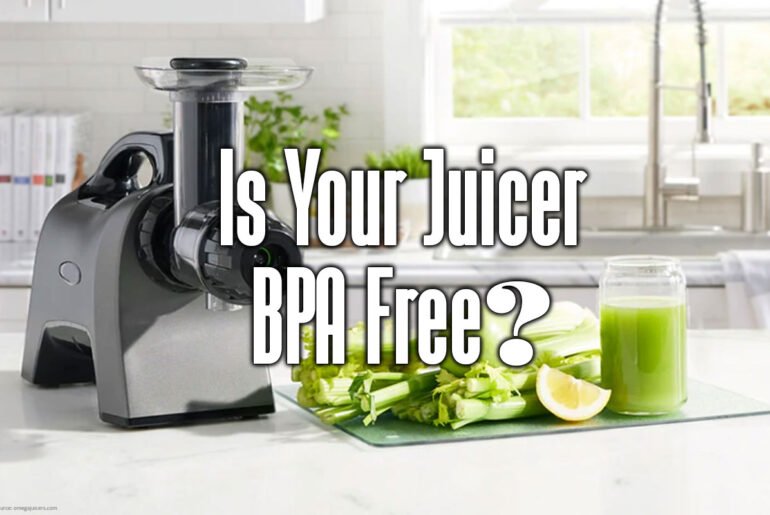

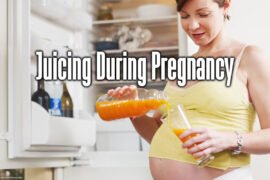
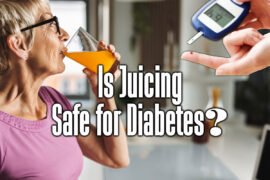
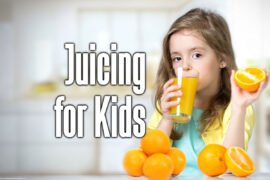


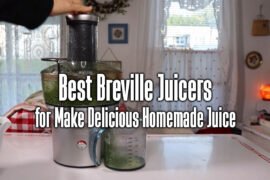
5 Comments
Pingback: Juicing for Kids - Blender Advisors
Pingback: Juicing During Pregnancy - Blender Advisors
Pingback: Is Juicing Safe for Diabetes? - Blender Advisors
Pingback: Best Juicers for Celery Juice - Reviews & Buying Guide 2022
Pingback: Omega J8006HDC Masticating Juicer Review - Blender Advisors